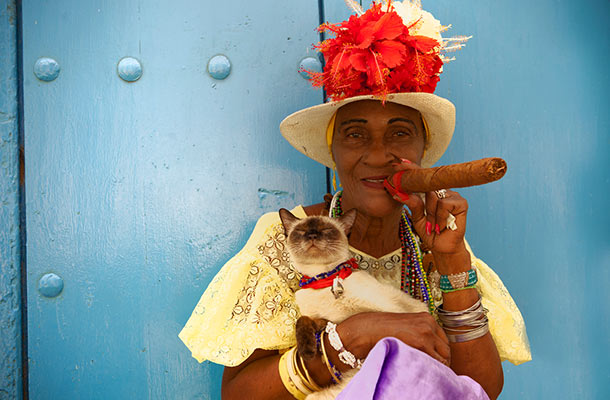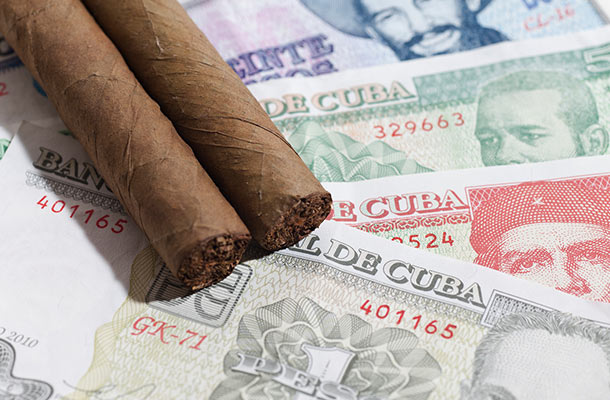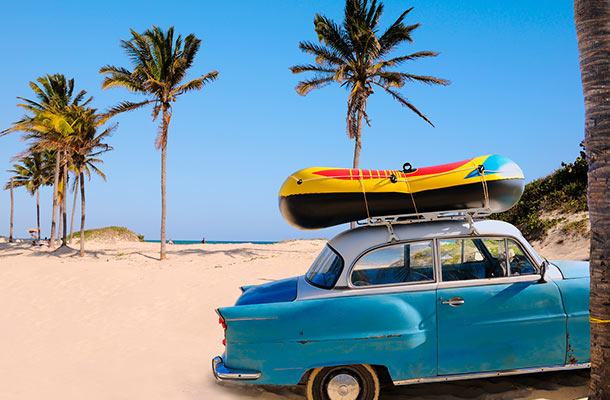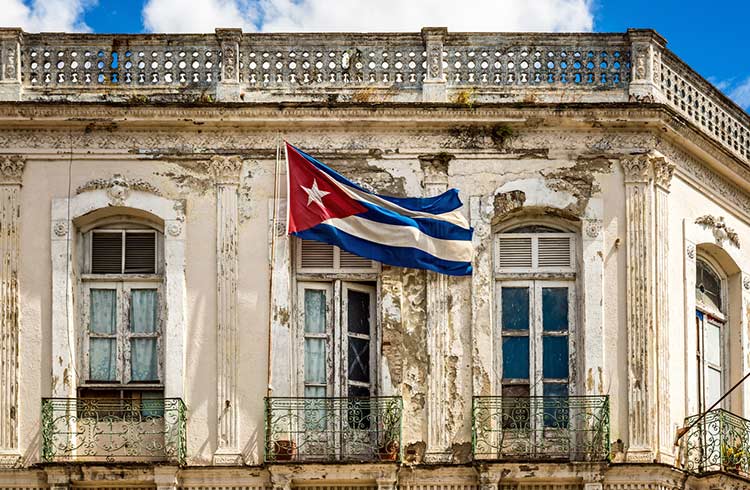6 Common Travel Scams Travelers Should Know in Cuba
Fake cigars, fake cash and scammers are just some of the petty crime you may encounter while in Cuba. Find out how to avoid these scams before you go.
 Photo © iStock/Ratstuben
Photo © iStock/Ratstuben
From relaxing beaches to fascinating historical architecture and exhilarating nightlife, the island of Cuba offers all the charm and beauty of the Caribbean without the crowds and commercialization. It's a destination that is sure to provide visitors with endless adventure and unforgettable experiences. But while the country itself is very safe for travelers, it's not uncommon for criminals to take advantage of unsuspecting tourists with various scams, swindles and cons.
Here are a few common scams to look out for when visiting Cuba.
- Fake Cuban cigars
- Restaurant scams in Cuba
- Being short changed in Cuba
- Counterfeit Cuban money and crooks
- Fake products in Cuba
- Jineteros/jineteras in Cuba
1. Fake cuban cigars
Everyone's heard of Cuba's famous cigars, and the legitimate ones are arguably some of the best quality smokes in the world. Unfortunately, the high demand for these commodities among tourists has made opportunistic swindlers take notice.
These criminals will often approach foreigners on the street with an offer to sell Cuban cigars at a deep discount. Ever hear the old adage "if it seems too good to be true, it probably is"?
Most of the time, the cigars being peddled are either fake or stolen. One thing to take note of is that genuine Cuban cigars are only available in state shops, state hotels or at official cigar factories.
The real deal comes in a box containing a certificate and sporting a holographic seal. If you don't see either of these things, you're probably looking at a fake. Legitimate cigars can be pricey and cost anywhere from 5 CUC to upwards of 400 CUC, or more.
Phony cigars, on the other hand, typically sell for about 1 CUC, and are probably not even worth that since fake cigars are mostly composed of tobacco waste. If you want to buy a genuine Cuban cigar and save a little money in the process, try asking your hotel doorman. They can sometimes get you the real deal tax free, which will shave a bit off the price.
2. Restaurant scams in Cuba
Cuban cuisine is delicious, and there are certainly plenty of delectable eateries to choose from. But one thing to look out for during a pleasant night out is a little extra on your bill.
Restaurants will often present an "adjusted" tab that contains extra items you didn't order. They particularly like to try this scam when you've been drinking and are less likely to notice.
The best way to avoid this is to simply pay after each meal or round instead of running a bar tab. And, of course, always double check your bill before paying.
Some establishments will work with other locals, who pose as friendly folks welcoming tourists and inviting them inside to enjoy a drink or snack. The unsuspecting victim is then charged double or even triple the normal amount, the excess of which is split between the business and its "friendly" accomplices.
Again, always check your bill to avoid any unwanted surprises.
3. Being short changed in Cuba
Cuban currency (CUP or CUC) can be a bit confusing to visitors, and some of the locals have seen this as an opportunity to make a little cash the dishonest way.
When paying for anything, whether it be a taxi ride, a meal or merchandise from a store, be very careful that you receive all of your change back.
One of the most common scams pulled in Cuba against tourists is that of short-changing them and then pocketing the money.
Be sure you fully understand the difference in value between the two currencies as well, so you aren't given back the wrong type. If you are due CUC back and the merchant instead gives you CUP, you've just received change that is worth about 20 times less.
4. Counterfeit Cuban money and crooks
Exchanging money on the streets is a definite no-no. Locals will often tout better rates and faster exchange service if you exchange your currency with them. What you'll likely end up with, however, is counterfeit or outdated money which will be completely worthless to you.
Meanwhile the criminal will be long gone with your good money. Local thieves will also often approach tourists with an offer to exchange their currency on their behalf at a local bank, where they claim they will be able to get a better rate because they are Cuban and foreigners receive inflated rates.
Know that if you hand over your money to one of these swindlers, you'll probably never see it again.
5. Fake products in Cuba
While counterfeit cigars are probably the most popular "fake" item to sell in Cuba, criminals also offer other merchandise for sale on the street that is less than legitimate.
Bottled water, for instance, that is actually nothing more than local tap water, is often sold in touristy areas. It is usually easy to tell when a bottle has been tampered with, but not always.
Your best bet is to purchase water from stores instead. If you do happen to buy a bottle of water on the street and it tastes peculiar, throw it away immediately.
Rum is another item that is often fraudulently sold as genuine when in reality has been switched out for lesser quality product so be particularly careful where you purchase it and from whom.
6. Jineteros/jineteras in Cuba
These are local "career criminals" who basically make their living on the streets scamming tourists. They are particularly prevalent in the larger cities of Cuba since that's where they'll likely find more victims.
These con artists will offer to sell just about anything, from cigars to drugs to sex. One of their more lucrative scams is selling discounted tickets for tourist activities, which in the end are not valid.
By the time the victim discovers they've been duped, the thief is long gone with their money. Solicitation of this sort is not legal and given Cuba's high police presence, it's advised that you do not interact with jineteros at all. If they do approach you, politely but firmly refuse and walk away.
Cuba is truly a lovely place to visit. But like any tourist destination, there will always be dishonest criminals who try to capitalize and scam, swindle or con their way to some extra cash. As long as you use your common sense and know what type of things to look out for, you'll be able to enjoy your trip without becoming a victim.
Related articles
Simple and flexible travel insurance
You can buy at home or while traveling, and claim online from anywhere in the world. With 150+ adventure activities covered and 24/7 emergency assistance.
Get a quote


2 Comments